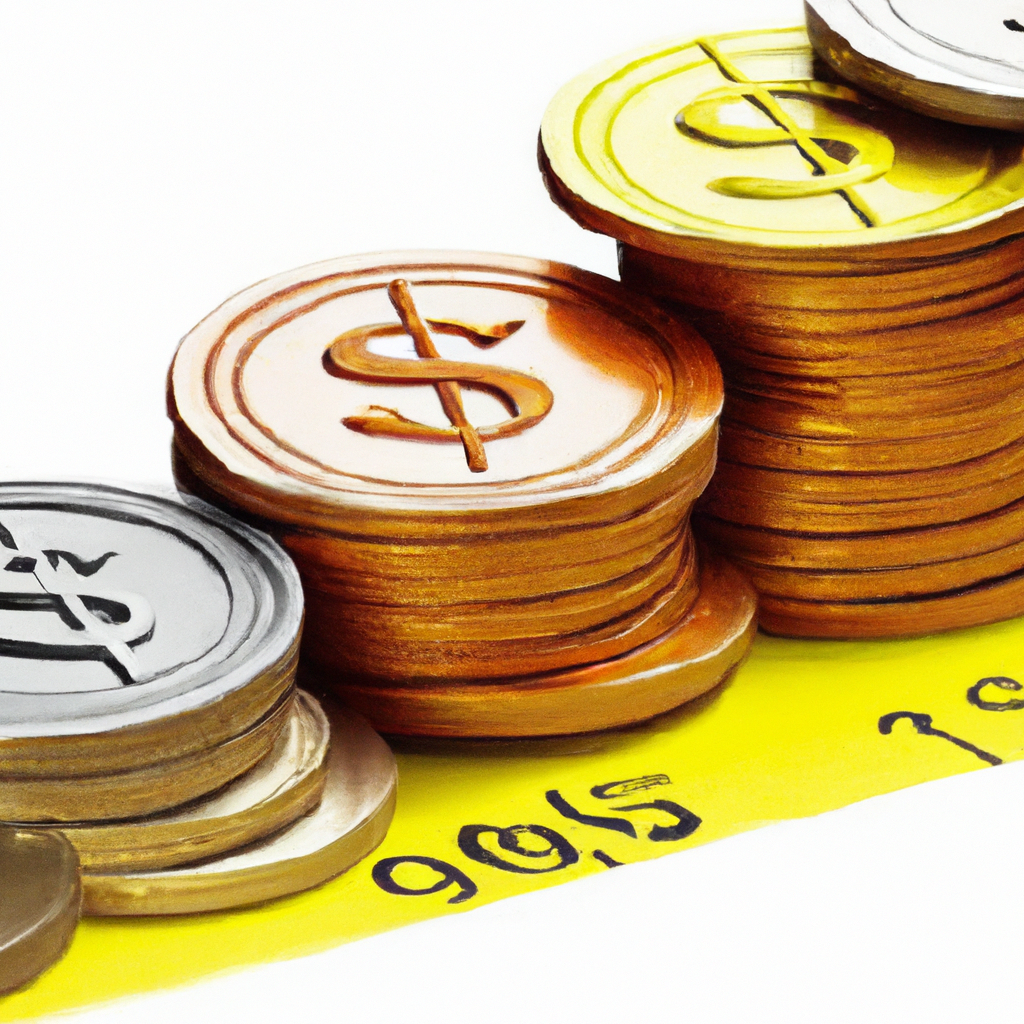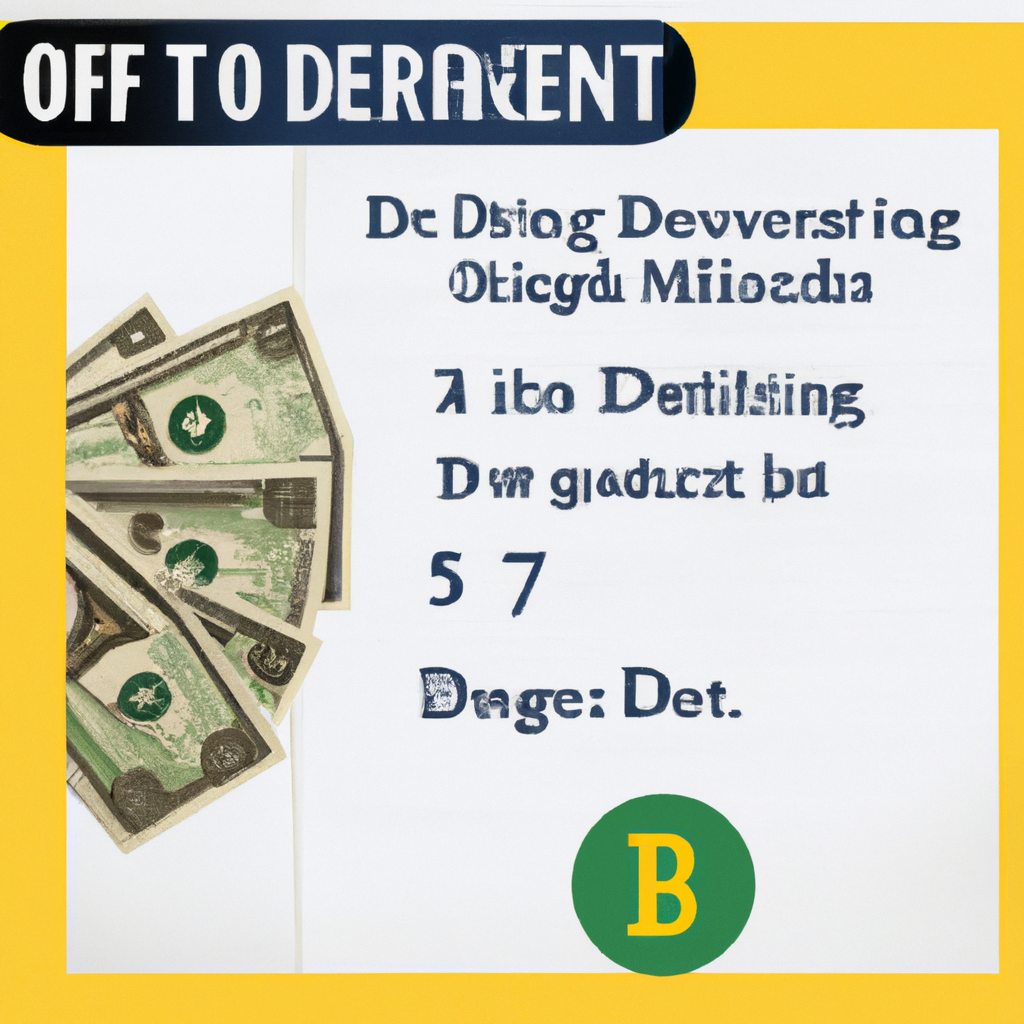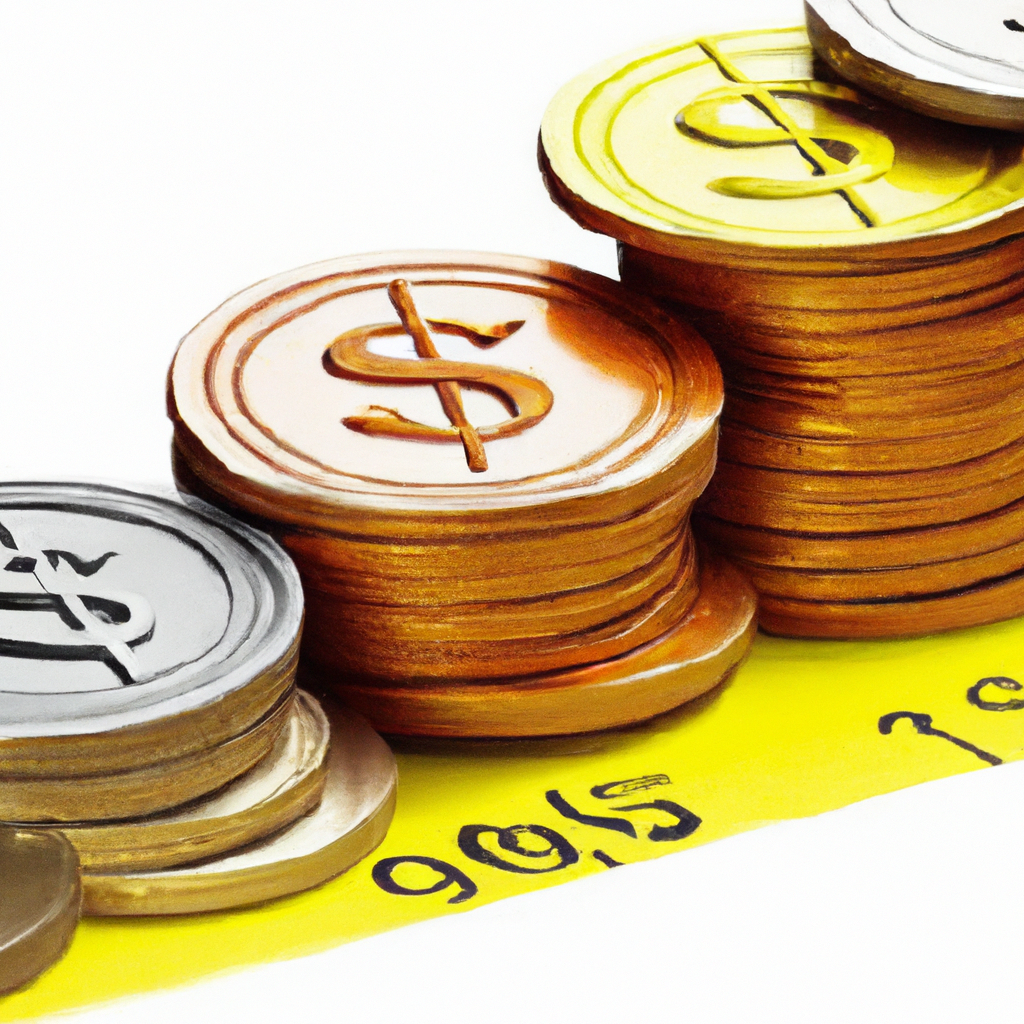If you’re tired of the never-ending cycle of debt and want to take control of your financial future, look no further. This article presents seven tried-and-true strategies that can help you pay off your debt faster and attain the financial freedom you’ve been dreaming of. From creating a budget and prioritizing your payments to negotiating with creditors and exploring consolidation options, these strategies are designed to empower you in your journey towards becoming debt-free. So grab a cup of coffee, sit back, and get ready to kickstart your path to financial peace of mind.
1. Create a Budget
Track Your Expenses
The first step in paying off your debt quicker is to create a budget and track your expenses. Start by keeping a record of all your expenses for at least a month. This will help you understand where your money is going and identify any unnecessary or wasteful spending habits. By knowing exactly how much you’re spending on different categories such as groceries, entertainment, or transportation, you can take control of your finances and make informed decisions about where to cut back.
Identify Areas to Cut Back
Once you have a clear picture of your expenses, it’s time to identify areas where you can cut back and save money. Look for any non-essential expenses or luxuries that you can temporarily eliminate or reduce. This might include eating out less frequently, canceling subscription services you don’t use, or finding more affordable alternatives for certain products or services. Remember, every dollar you save can be put towards your debt repayment, helping you achieve your financial goals faster.
Allocate Money for Debt Repayment
After tracking your expenses and cutting back where possible, it’s important to allocate a specific amount of money towards debt repayment in your budget. Determine how much you can afford to pay each month towards your debts, and make it a priority to stick to this amount. Consider making sacrifices in other areas of your budget to free up extra funds for debt repayment. By having a clear plan and commitment to allocating money towards debt, you’ll be on your way to paying it off quicker.
2. Prioritize Debt
List Your Debts
In order to effectively pay off your debt, you need to have a clear understanding of what you owe. List all your debts, including any credit cards, loans, or outstanding balances. Include the total amount owed, the minimum monthly payment, and the interest rates for each debt. This will help you prioritize which debts to focus on first based on factors such as interest rates and the total amount owed.
Choose a Debt Repayment Strategy
Once you have listed all your debts, it’s time to choose a debt repayment strategy. Two popular methods are the debt snowball method and the debt avalanche method. The debt snowball method involves starting with the smallest debt and paying it off first, while making minimum payments on the other debts. This method provides a psychological boost by allowing you to see quick progress as you eliminate smaller debts. The debt avalanche method prioritizes paying off debts with the highest interest rates first, saving you money in the long run. Choose the strategy that aligns with your financial goals and motivates you to stick with it.
Consider Debt Consolidation
If you have multiple debts with high interest rates, it may be worth considering debt consolidation. Debt consolidation involves combining all your debts into a single loan with a lower interest rate. This can make it easier to manage your debts and potentially save you money on interest. However, it’s important to carefully research and consider the terms and fees associated with debt consolidation before making a decision. Seeking advice from a financial advisor can help you determine if debt consolidation is the right option for you.

3. Generate Extra Income
Explore Side Hustles
One effective way to accelerate your debt repayment is to generate extra income through side hustles. Look for opportunities to earn money outside of your regular job, such as freelance work, tutoring, or selling handmade products online. The gig economy offers a range of flexible options that can fit around your schedule and provide a steady stream of additional income. By dedicating your side hustle earnings towards debt repayment, you can make significant progress in paying off your debt quicker.
Turn Hobbies into Profits
Do you have a hobby or skill that could be monetized? Consider leveraging your talents to generate extra income. Whether it’s photography, writing, graphic design, or baking, there are often opportunities to turn your hobbies into profitable ventures. Start by offering your services to friends and family or promote them on social media platforms. By channeling your passion into a side business, you not only earn extra money but also enjoy the process of doing something you love.
Rent out Unused Spaces
If you have extra space in your home or own property that is not fully utilized, consider renting it out to generate additional income. You can rent out a spare room through platforms like Airbnb or VRBO, or even rent out your garage or parking space. This can be a great source of passive income that can be directly allocated towards your debt repayment. Just make sure to understand any legal requirements or regulations applicable to your circumstances before embarking on this income-generating strategy.
4. Reduce Expenses
Ditch Unnecessary Subscriptions
Take a closer look at your subscription services and eliminate any that are not essential or provide minimal value. This includes entertainment streaming platforms, gym memberships, magazine subscriptions, or any other recurring expenses that are not necessary for your day-to-day life. It’s easy to overlook these subscriptions, but they can add up quickly and take a significant toll on your finances. By canceling unnecessary subscriptions, you’ll free up more money to put towards debt repayment.
Shop Smart and Compare Prices
When it comes to shopping, it’s important to shop smart and compare prices before making a purchase. Take advantage of price comparison websites or apps to find the best deals on the items you need. Look for discounts, coupons, or promotional offers that can help you save money. Consider buying in bulk or purchasing generic brands for certain products to save even more. By being mindful of your spending habits and avoiding impulse purchases, you can reduce expenses and allocate more funds towards paying off your debt.
Negotiate Lower Interest Rates
If you have credit card debt or other loans with high interest rates, it’s worth reaching out to your creditors to negotiate lower rates. Explain your situation and demonstrate your commitment to paying off the debt. They may be willing to lower the interest rates, especially if you have a good payment history. This can significantly reduce the amount of interest you pay over time and make it easier to pay off your debt quicker. Remember, it never hurts to ask, and the potential savings can be substantial.

5. Use the Debt Snowball Method
Start with the Smallest Debt
The debt snowball method involves starting with the smallest debt and focusing your efforts on paying it off first, while making minimum payments on the other debts. This method provides a sense of accomplishment and motivation as you quickly eliminate smaller debts. By paying off one debt at a time, you’ll have more money available to tackle the larger debts in the future. This approach helps build momentum and keeps you motivated throughout the debt repayment journey.
Make Minimum Payments on Other Debts
While focusing on paying off your smallest debt, it’s important to continue making the minimum payments on your other debts. Falling behind on minimum payments can negatively impact your credit score and may result in additional fees or penalties. By staying current with your minimum payments, you maintain a good financial standing while still prioritizing the debt repayment process.
Gradually Increase Payments
As you pay off each debt, celebrate the milestone and reallocate the funds previously used for that debt towards the next one on your list. This is where the snowball effect comes into play. With each debt you pay off, you’ll have more money available to make extra payments towards the remaining debts. Gradually increase the amount you’re paying towards each debt to accelerate the repayment process. This incremental approach allows you to build momentum and gain even more financial freedom.
6. Utilize the Debt Avalanche Method
Begin with the Highest Interest Debt
In the debt avalanche method, you start by prioritizing and paying off the debts with the highest interest rates first. By targeting the debt that accrues the most interest, you reduce the overall amount of interest you’ll pay over time. This method is financially advantageous and can save you money in the long run. By eliminating high-interest debt sooner, you’ll have more money available to tackle the rest of your debts with less burden from compounding interest.
Continue Making Minimum Payments on Other Debts
Similar to the debt snowball method, it’s crucial to continue making minimum payments on all your other debts while focusing on the highest interest debt. Regularly fulfilling the minimum payment requirements is essential to maintaining a good credit score and avoiding any penalties. By staying on track with your minimum payments, you ensure a solid financial foundation while actively targeting your highest interest debt.
Apply Extra Payments as You Go
As you pay off the debt with the highest interest rate, celebrate your progress and reallocate the funds towards the next highest interest debt. By systematically eliminating each high-interest debt, you’ll pay less overall interest and experience greater financial relief. The debt avalanche method is a strategic approach that maximizes your ability to pay off debt quicker and become financially independent.
7. Seek Professional Help
Consult a Financial Advisor
If you are overwhelmed with your debt and unsure about the best strategies to pay it off, it’s worth seeking advice from a financial advisor. A financial advisor can help evaluate your financial situation, provide personalized guidance, and create a customized plan to pay off your debts faster. They have the expertise and knowledge to navigate complex financial situations and can help you make informed decisions that align with your goals.
Consider Credit Counseling
Credit counseling is another option to consider if you need assistance managing your debts. Credit counseling agencies provide services such as debt management plans, budgeting assistance, and financial education. They can work with you to create a realistic repayment plan, negotiate with your creditors, and provide guidance on how to improve your financial habits. Credit counseling can be a valuable resource for those seeking professional support in their debt repayment journey.
Explore Debt Settlement Options
If your debts have become unmanageable and you’re facing significant financial hardship, exploring debt settlement options may be necessary. Debt settlement involves negotiating with your creditors to reduce the total amount owed. This can provide some relief and allow you to pay off your debts quicker. However, debt settlement can have long-term consequences on your credit score and financial future, so it’s important to carefully consider the potential impacts before pursuing this option. Consulting with a professional in this field is highly recommended to fully understand the implications.
8. Utilize Windfalls and Bonuses
Direct Unexpected Income Towards Debt
When you receive unexpected income such as tax refunds, bonuses, or monetary gifts, it’s tempting to splurge or indulge in something special. However, to pay off your debt quicker, it’s beneficial to resist the temptation and prioritize debt repayment. Direct any windfalls or bonuses towards your debts instead of spending them on unnecessary purchases. This will significantly accelerate your progress and help you achieve financial freedom sooner.
Avoid Splurging or Overspending
While it’s important to reward yourself and enjoy life, it’s crucial to avoid splurging or overspending when trying to pay off your debts. Set clear boundaries and goals for your spending habits and resist the temptation to indulge in unnecessary purchases. By developing discipline in your spending choices, you’ll be able to prioritize debt repayment and stay on track towards your financial goals.
Create a Strategy for Windfall Usage
To make the most of windfalls and bonuses, create a strategy for how you’ll use them towards debt repayment. Determine the percentage you’ll allocate towards debt versus the portion you’ll allow yourself to spend or save. This will help you maintain a balanced approach and avoid the feeling of deprivation or restriction. By having a plan in place, you’ll make better financial decisions and maximize the impact of any unexpected income.
9. Automate Debt Payments
Set Up Automatic Transfers
To ensure consistent and timely debt payments, set up automatic transfers from your bank account. Schedule payments to be made on the due dates each month for your various debts. This eliminates the risk of forgetting to make a payment or incurring any late fees. By automating your debt payments, you streamline the process and create a sense of financial responsibility.
Ensure Payments Are Made on Time
Late payments can have a negative impact on your credit score and may result in additional fees or penalties. By automating your debt payments, you can ensure they are made on time, avoiding any potential consequences. This helps maintain a good payment history and builds a solid foundation for your financial well-being.
Review Regularly for Any Changes
While automating your debt payments is convenient and reliable, it’s essential to review them regularly for any changes. Keep an eye on your bank statements and ensure that the correct amounts are being deducted on the scheduled dates. If any changes occur, like a change in interest rates or minimum payment requirements, update your automatic transfers accordingly. Regularly reviewing your debt payments helps you stay informed and in control of your financial progress.
10. Stay Motivated and Consistent
Celebrate Milestones
Paying off debt can often feel like a never-ending journey, which is why it’s important to celebrate milestones along the way. As you pay off each debt or reach certain targets, take a moment to acknowledge and reward yourself. Celebrating milestones provides a sense of achievement and keeps you motivated to continue on your debt repayment journey.
Seek Support from Friends and Family
Paying off debt can be challenging, both emotionally and financially. Seek support from friends and family who can provide encouragement, guidance, and accountability. Share your goals and progress with trusted individuals in your life, and involve them in your financial journey. Having a support system can make a significant difference in staying motivated and consistent.
Regularly Assess Progress
Lastly, make it a habit to regularly assess your progress. Track your debt repayment journey and monitor your financial goals. Celebrate the progress you’ve made, identify areas for improvement, and adapt your strategies if necessary. Regularly assessing your progress keeps you engaged and aware of your financial situation, helping you stay on track and moving towards debt freedom.
By implementing these effective strategies and remaining committed to your debt repayment goals, you’ll be well on your way to paying off your debt quicker. Remember, it’s not always an easy journey, but with patience, discipline, and determination, you can achieve financial freedom and a brighter future.

